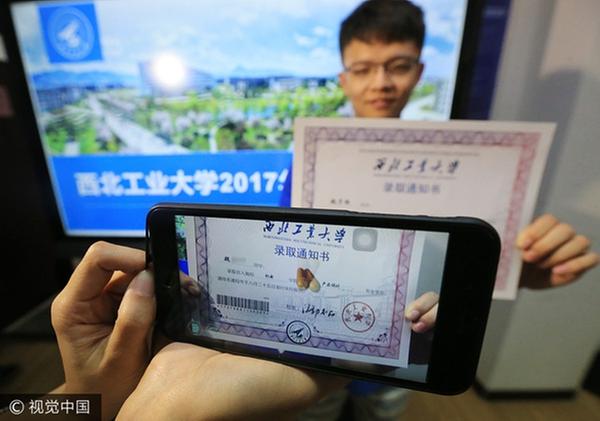There cannot be any tolerance of academic cheating
China Daily | Updated: 2017-07-31 07:42
 |
| The Northwestern Polytechnical University (NPU) in Xi'an, Shaanxi province issues China's first letter of acceptance using Augmented Reality (AR) technology to students on July 4. [Photo/VCG] |
In April the medical journal Tumor Biology, published by Springer Nature, retracted some 107 papers authored by Chinese scholars, after it was discovered the email addresses of the peer reviewers were fabricated. After the articles were retracted, a ministerial-level joint working group was formed to look into the matter.
According to its investigation, of the 521 authors involved, 486 were guilty of misconduct at various levels, 24 are still being investigated, and 11 were deemed innocent.
The wrongdoers are paying a huge price for their dishonesty. Of the authors involved, 376 are banned from undertaking research programs for various periods of time and they have had to return their research funds. They have also had their awards and honors revoked and eligibility for promotion canceled.
The punishments demonstrate the country's determination to eradicate academic malpractices. For years complaints have been heard about tainted research programs and academic plagiarism, but few of them were taken seriously by the supervisory authorities. As a result, some scholars with a known reputation for academic malpractices could continue their wrongdoing.
The punishments imposed on those behind the 107 compromised papers should help restore the nation's academic integrity. It is universally accepted that academic fraud must come with huge consequences. China has every reason to clean up its academic environment.
On their part, Chinese universities and research institutes should blacklist all researchers caught cheating, and extra legislative efforts are called for to hold them accountable under the Criminal Law.
























